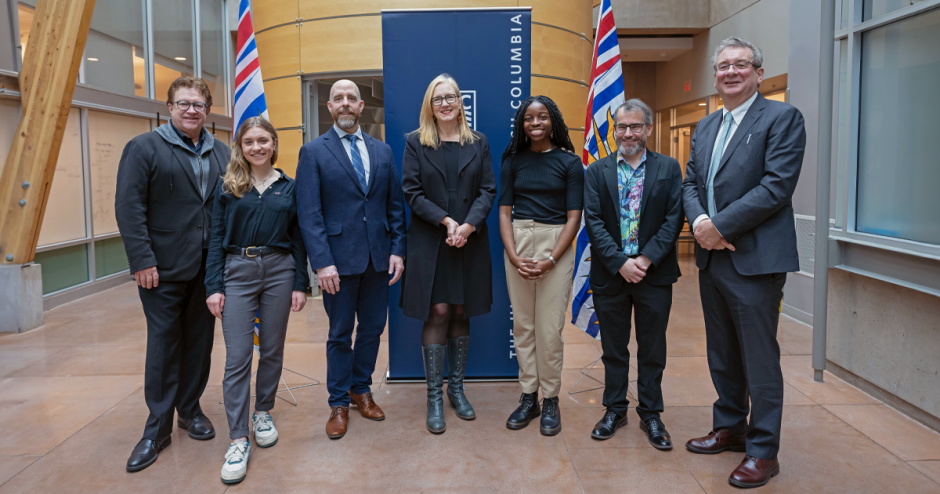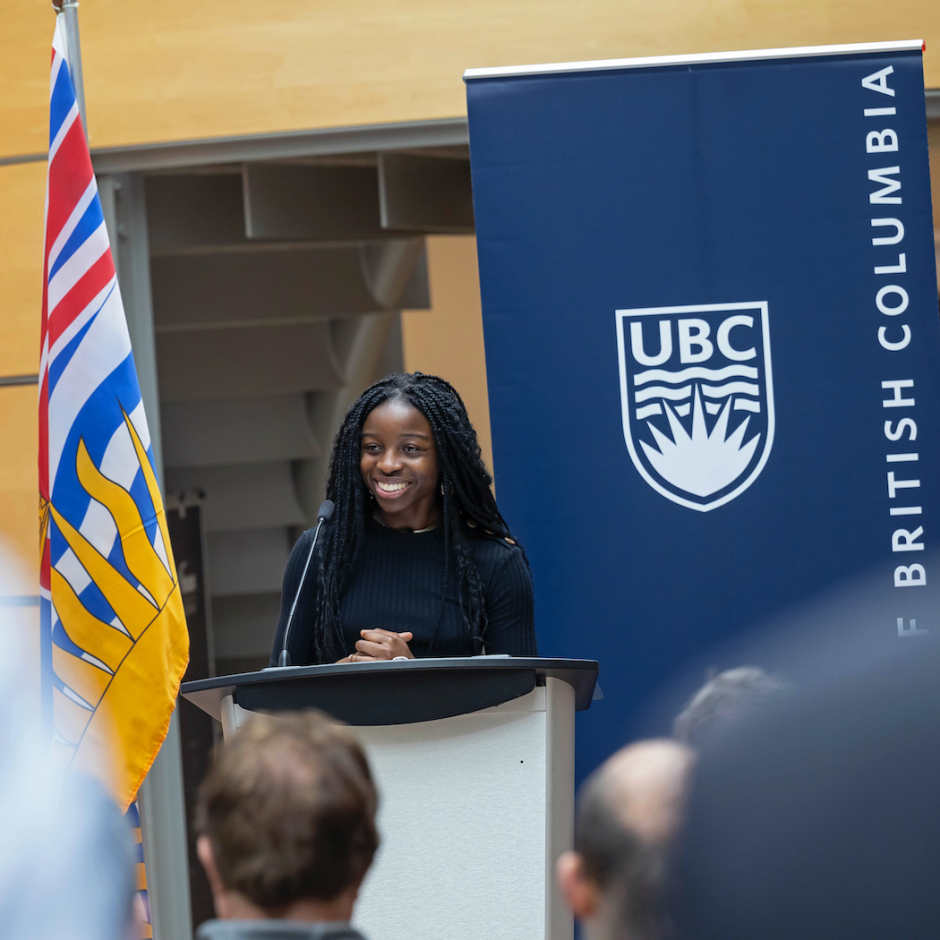
UBC is adding 778 new student spaces over six years in technology and life sciences programs thanks to additional funding from the B.C. government.
B.C.’s Minister of Jobs, Economic Development and Innovation, the Honourable Brenda Bailey, was at UBC’s Vancouver campus to celebrate the expansion as part of the provincial government’s long-term plan to meet growing demand for talent in B.C.’s tech and life sciences sectors.
“The students who will be filling these hundreds of seats at UBC will help increase the supply of talent into the province’s rapidly expanding tech sector,” says Bailey. “These graduates will be rewarded with well-paying careers while helping to advance health care and research to improve life for British Columbians, and build our clean, innovative economy of the future.”
The funding adds new student spaces in a range of programs across the faculties of medicine, applied science, pharmaceutical sciences, and science on UBC’s campuses in Vancouver and the Okanagan.
Within the faculty of medicine, this includes 58 new spaces in graduate programs at the School of Biomedical Engineering (SBME), UBC’s first inter-faculty school created in partnership with the faculty of applied science.
“We are grateful to the B.C. government for this generous investment, which will further enhance UBC’s position as a global leader in technology learning and innovation,” says UBC President and Vice-Chancellor, Dr. Benoit-Antoine Bacon. “This investment not only provides our students with exciting new education and career opportunities, but it also helps meet the demand for talent in B.C.’s rapidly growing tech and life sciences industry. With these new spaces, UBC is preparing even more students to become the engineers, scientists, product developers, and technology leaders that will help propel our society and economy forward.”
Since it’s creation in 2017, SBME students and graduates have been driving lifesaving innovations in health care — from the development of next-generation therapeutics to point-of-care medical devices and implants — and fuelling the growth of B.C.’s burgeoning biotech sector.

“In terms of biomedical engineering, it’s a degree that I think really pushes students to the balance between the life sciences and technology, and how we can solve these complex medical problems, whether locally or internationally,” says Coralie Tcheune, a UBC undergraduate student in biomedical engineering. “Expanding these programs is not only opening doors for aspiring students like myself in the STEM fields, but it also demonstrates a commitment to fostering innovation and opportunity right here in B.C.”
The investment will also establish two new programs, a Bachelor of Data Science on the Vancouver campus, and a Master of Science in Biotechnology on the Okanagan campus.
UBC Vancouver will see a total of 578 additional spaces added, including 120 spaces in the undergraduate data science program, 160 spaces in the undergraduate microbiology and immunology program, 60 spaces in undergraduate pharmaceutical sciences, 180 spaces in undergraduate chemical, computer and integrated engineering program streams, and 58 spaces in biomedical engineering.
Meanwhile, UBC Okanagan will add 200 additional spaces, including 60 in the undergraduate data science program, and 100 in the undergraduate engineering program. The new Master of Biotechnology program will have 40 spaces.
“There’s growing demand for talent as workplaces and the economy are transforming and we have more job openings in growing and in-demand fields than we have the skilled workers ready to fill them,” says Lisa Beare, Minister of Post-Secondary Education and Future Skills. “People with technological skills and knowledge are in high demand and that’s why we are excited to add tech-relevant spaces for people to learn, grow and thrive in these in-demand careers.”
These spaces will be added over six years, including an investment of $5.4 million in capital funding to equip and renovate labs and classrooms, and a total of $17.7 million in start-up and on-going operating funding over the first three years of the planned expansion.